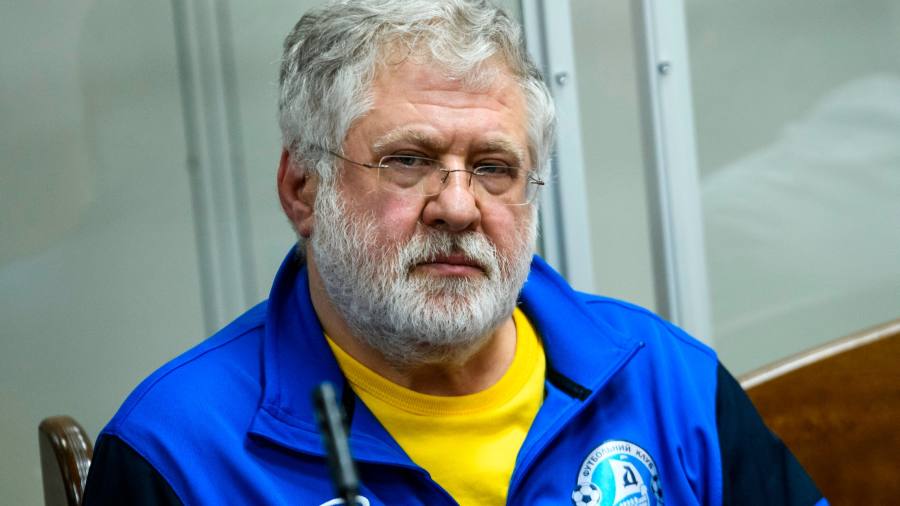
Receive free War in Ukraine updates
We’ll send you a myFT Daily Digest email rounding up the latest War in Ukraine news every morning.
Since Russia’s full-scale invasion 18 months ago, Ukraine has been waging wars on two fronts. One is the existential fight against an external aggressor. The other is the continuing internal struggle against the corruption that sapped Ukraine’s independent statehood even before Kremlin tanks rolled over its borders. Just as Kyiv’s counteroffensive shows tentative signs of making gains, fraud charges against a Ukrainian oligarch and the replacement of its defence minister signal a determination by President Volodymyr Zelenskyy to advance in the domestic struggle, too. He should keep it up.
Firing a defence minister respected by his peers, in the middle of a war, may baffle those unfamiliar with Kyiv’s serpentine politics. Indeed, Oleksiy Reznikov fulfilled his most compelling task — helping to cajole Ukraine’s often foot-dragging western allies to provide billions of dollars of military assistance — with success. He has not faced allegations of personal graft, and may yet be slotted into Kyiv’s ambassadorship to London. Since the general staff, not the defence ministry, co-ordinates strategy and combat operations, his resignation will not redraw battle plans.
But activists and media have levelled allegations against Kyiv’s defence ministry, including that it paid inflated prices for eggs and for military jackets for the army. Such claims are especially corrosive since they suggest individuals may be profiteering from the war and leaving frontline forces undersupplied. Reznikov — however busy with his international role — was criticised for failing to bring more accountability to his department. His initial response was to present the claims as a treacherous breach of military secrecy.
Zelenskyy’s nomination of Rustem Umerov to bring “new approaches” as defence minister follows other recent steps to clamp down on military graft. The president last week decried systematic corruption in medical exemption certificates to avoid military service. Last month, he dismissed all the heads of Ukraine’s regional army recruitment centres.
Also last weekend, a court issued a detention order for Igor Kolomoisky after the tycoon was named a suspect in an unspecified fraud and money laundering case. Zelenskyy declared in his nightly address that postwar Ukraine would have “different rules”.
Attempts to bring Kolomoisky — who has consistently denied wrongdoing — to trial for alleged large-scale fraud at PrivatBank, Ukraine’s biggest lender which he previously co-owned, have not so far borne fruit. But the president’s readiness to distance himself from the mogul who backed his 2019 presidential bid suggests Zelenskyy is intent on sending a message at home and abroad.
This is overdue. Though Ukrainian forces claim to have broken through the first line of Russian defences in the southern Zaporizhzhia region, the painful progress of the counteroffensive suggests the conflict will be drawn out. Western partners must be ready to provide support for the long haul. Any perception that Kyiv is flagging in its domestic reforms will make it harder to maintain US and European resolve. Ukraine also has formal conditions to meet if it is to begin EU accession talks.
All this adds to the extraordinary pressures on the Ukrainian leader. He must achieve more consistent progress in curbing graft and reining in overmighty oligarchs while guarding against appearances of arbitrary or selective justice, in a state still operating under martial law. He must give free rein to independent institutions of which he sometimes seems suspicious. Yet only then can he deliver, even if Kyiv wins the military struggle, the “different” Ukraine he has promised his people.